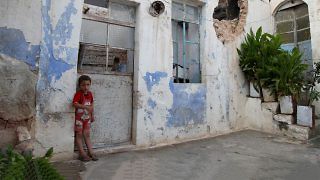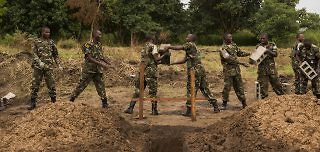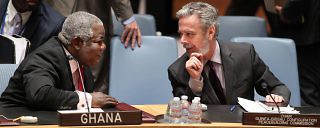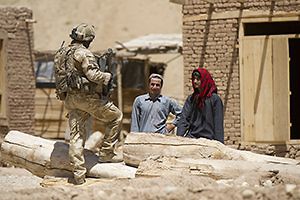New evidence shared in a recent IPI report, Reimagining Peacemaking, shows that when women are able to influence a peace process, a peace agreement is almost always reached and the agreement is more likely to be implemented.
Author: Marie O'Reilly
-
-
Irene Santiago, Lead Convener of Women Seriously, says a social and political movement must push the United Nations to increase the role of women in peace and security.
-
Bineta Diop, African Union Special Envoy for Women, Peace and Security, discusses her dream of gender parity and ending violence against women and girls in Africa.
-
Director of the Global Policy Initiative at Columbia University, Michael Doyle, says the number one priority of the United Nations must be to save the lives of those immediately at risk.
-
The author of “UN Peacekeeping in Civil Wars” discusses the changing nature of conflict and how that has impacted UN peacekeeping efforts.
-
Pulitzer Prize-winning author and op-ed columnist Nicholas Kristof discusses the benefits of building a grassroots movement to end discrimination against women and girls.
-
According to former Canadian diplomat Daryl Copeland, science- and technology-related issues are greater threats to the global system than religious extremism and political violence.
-
Brazilian Ambassador to the UN Antonio de Aguiar Patriota explains what he means by “enhanced multilateralism.”
-
The latest video released by the so-called Islamic State on Sunday showed the aftermath of the beheading of a fifth Western hostage, aid worker Peter Kassig. Apparently less choreographed and more rushed than the group’s previous video portrayals, it represents yet another gruesome piece of propaganda that has grabbed the world’s attention once more.Since it […]
-
A new report on human security looks at how the concept can help governments and citizens partner in order to better protect local communities.















